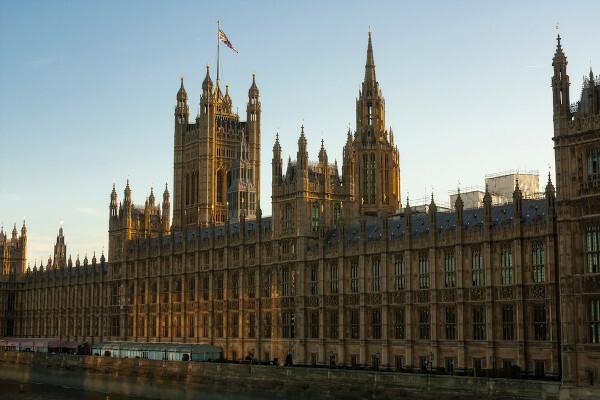With the coming of the heart of Dom Pedro I to Brazil and the bicentennial of Brazil's Independence, the events that led Dom Pedro I to proclaim the country's independence from Portugal are recalled.
Although the cry of "Independence or death" was proclaimed in 1822, the Brazilian historical landmark was only possible due to a series of events that began in 1808. That's because that was the year of the arrival of the royal family in Brazil. The monarchy landed in the country in an attempt to escape the French troops who invaded Portugal under the command of Napoleon Bonaparte.
Read too:Five curiosities about the Independence of Brazil
Royal family in Brazil
A arrival of the Portuguese royal family in Brazil allowed a series of economic and political changes in the country. One of them was opening of ports Brazilians to friendly nations.
Another major change was the integration of Brazil as part of the Portuguese kingdom, which was renamed the United Kingdom of Portugal, Brazil and the Algarves.
However, the presence of the royal family in Brazil also caused demonstrations of dissatisfaction. A Pernambuco Revolution of 1817 was one of them. After three years of violent repression, the Portuguese people also demonstrated, provoking the Liberal Revolution in Porto from 1820.
This was the starting point of Brazil's independence process.
Do not stop now... There's more after the publicity ;)
Independence Process
The proclamation of the independence of Brazil took place during the regency of Pedro de Alcântara, who would later be called Dom Pedro I.
After the Porto Revolution, a series of unpopular measures were taken in Brazil, such as the transfer of the main institutions to Portugal, sending troops to Rio de Janeiro and demanding the return of the prince regent to Portugal.
The return of Dom Pedro I was demanded in December 1821 and, as a result, the Resistance Club was born. In January 1822, a document with more than 8 thousand signatures was delivered to D. Pedro demanding his stay in Brazil.
In this context, the Prince Regent said the words that entered the history of the country:
“As it is for the good of all and the general happiness of the nation, I am ready; tell the people that I stay.”
All the events so far and those of the coming months were responsible for inciting Brazil's rupture with Portugal.
know more: Dia do Fico — the emblematic day on which D. Pedro declared that he would not return to Portugal
cry of independence
d. Pedro I was on a trip to São Paulo when he received the extraordinary session organized by Maria Leopoldina, his wife.
At the time, while suffering from intestinal problems, the Prince Regent read the news and ratified the independence order with a shout on the banks of the Ipiranga River. However, historians do not have evidence to prove the cry of the Ipiranga.
September 7th was not the end of the independence process. The process went on for months with a war for independence, culminating in important events, such as the coronation of Dom Pedro on December 1st.
Consequences of Brazil's independence
One of the main consequences of Brazil's independence process is the construction of a Brazilian nationality. In addition, the establishment of monarchy Brazilian became one of the only ones, along with Haitian and Mexican.
On the other hand, Brazil went into debt with the payment of 2 million pounds as compensation to the Portuguese.
independence anthem
O Independence Anthem is a song that was created in honor of Independence of Brazil, with lyrics based on a poem by a poet and writer named Evaristo da Veiga.
The poem had been written by Evaristo da Veiga in August 1822 as a demonstration of his support for Brazilian independence. See the lyrics of the Anthem of Independence of Brazil:
Now you can from the Fatherland children,
To see the kind mother happy;
Freedom has dawned
On the horizon of Brazil
Freedom has dawned,
Freedom has dawned,
On the horizon of Brazil.
Brave Brazilian people!
Gone slavish fear
Or stay the homeland free
Or die for Brazil;
Or let the homeland be free,
Or die for Brazil.
The shackles that forged us
From perfidy cunning ruse...
There was a more powerful hand...
Brazil mocked them;
There was a more powerful hand
There was a more powerful hand
Brazil mocked them.
Brave Brazilian people!
Gone slavish fear
Or stay the homeland free
Or die for Brazil;
Or let the homeland be free,
Or die for Brazil.
Fear not impious phalanxes
Who present a hostile face;
Your breasts, your arms
They are walls of Brazil;
Your breasts, your arms
Your breasts, your arms
They are walls of Brazil.
Brave Brazilian people!
Gone slavish fear
Or stay the homeland free
Or die for Brazil;
Or let the homeland be free,
Or die for Brazil.
Congratulations, oh! Brazilians!
Now, with manly grace,
Of the universe among the nations
The one from Brazil shines
Of the universe among the nations
Of the universe among the nations
That of Brazil shines.
Brave Brazilian people!
Far go… servile fear
Or stay the homeland free
Or die for Brazil;
Or let the homeland be free,
Or die for Brazil.


